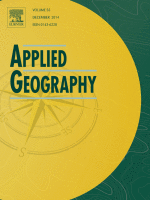Krellenberg, K., Link, F., Welz, J., Harris, J., Barth, K. & Irarrazaval, F. (2014). Supporting local adaptation: The contribution of socio-environmental fragmentation to urban vulnerability. Applied Geography, (55): 61-70.
Abstract
Climate change and urbanization are two parallel ongoing processes that call for context-specific and overarching responses in order to tackle the complex challenges these processes involve. This article focuses specifically on the challenges associated with socio-environmental fragmentation and residential vulnerability. It is at the household, neighbourhood and municipal levels that often still lack the in-depth analysis necessary for context-specific responses. Therefore, the focus of this article is on the micro and local levels, offering an approach that theoretically combines the two concepts of fragmentation and vulnerability in order to evaluate the utility of this information regarding the development of practical, context-specific local adaptation options in response to two climate change related hazards: flooding and heat. Based on the theoretical framework a three-stage methodological approach is presented, in which each stage includes its own set of specific methodologies with particular scales and elements of analysis, utilizing both quantitative and qualitative methods. By presenting a theoretical and methodological approach that combines socio-environmental fragmentation and residential vulnerability, and discussing its application in the context of the Metropolitan Area of Santiago de Chile, benefits and constraints of the approach are also explored.

